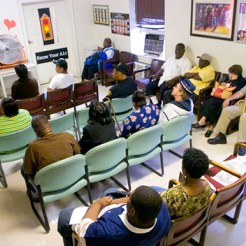I’m somewhere at the 95k mark in my current novel in progress. I’d assessed it at 130k-150k for the first draft, and I still think that’s a good target number. (Of course, given how I’ve been glaring at previously written chunks, inane dialog, scenes that go nowhere, and broken stuff I need to go back and fix, I’m hoping I end up with 90k of solid second draft.)
What is interesting is that this novel, which I’d started on a tear with 5k and even a 7k writing day, now struggles to get to 2k. And that doesn’t bother me as much as the fact that the plot hasn’t progressed anywhere nearly as far or fast as I’d expected. My experience is that this is normal: there’s more to remember about characters, more to fact-check against what’s already happened and, when dealing with “real world” fiction (instead of SF/FF) ensuring that real history matches what characters know, remember, and experience. Of course, given that this is a post-apocalyptic hero quest, there’s a boatload of science that needs to work out correctly: everything from heavy metal contaminant levels in volcanic ash to which grasses would be growing in a colder, wetter Permian Basin to me hitting up oil field workers and equine rehabilitators for their expertise in various archana I’d not be able to suss out on my own. (The internet, oddly enough, seems to have a wealth of incorrect, outdated, and ludicrous information on just about every topic imaginable; who woulda thunk???)
I’ve mentioned before that I’m trying out Scrivener for this novel, a departure from my usual and long-trusted package of MS Word/Excel and a tab or five of web links in my browser. It’s forcing me to look at everything from a scene/chapter point of view, and a lot of the handy things (like, for example, editing shortcuts such as switch case and autocomplete) are different, and more cumbersome, in Scrivener than in Word. One shouldn’t have to need a tutorial to use a package like this. Ugh.
My main cause for my slowing down is, however, my outlining skills. I’ve got a 100- and 5000-word synopsis of the novel, so I know what goes on. How the characters get to these waypoints is the issue. When I outline (or even sketch out) several scenes or chapters ahead, I can roll along merrily. And then I get to the end of that piece, and I find that all the minutiae of the writing in getting through the outlined areas has brought me to where I dont want to continue from there. A character has had an epiphany, a place I’d imagined in my outline as abandoned isn’t, or vice versa. The weather. The horses. My main characters’ moods. So then there’s a period of Great Restructuring so I can get things lined up before I can continue outlining.
Sure, I could just slip a note in at the end and then continue writing as if the Great Restructuring had already happened. But there are dialog and scene changes that would be written, and by the time I’d get around, after the first draft is finished, to revisit them, I’d have a lot of remembering to do, with multiple discontinuities to be addressed. I’m shuddering just thinking about it.
The alternative, I’m told by smug parts of my apparently-not-sub-enough parts of my consciousness, would be just to outline everything and stick to the plan. For so many reasons I rebel against this. I tried writing a novel based on this idea and I had to put it down after about five thousand words of writing (not including the outline, summaries, etc.). Maybe one day I’ll pick it up again and try it without using the dang outline as a poured-concrete kind of framework.
With fully outlining a piece before starting comes the ability to do all the necessary research for the novel. All the science and pack train questions I’m asking or looking up could be done in one fell swoop instead of being salted into my writing time. (Of course, then what productive thing would I do when pausing in the writing?)
I’ll be all right this time, because the story is tied to a very specific geographic trek, one that I can map out using Google Earth in advance, and then I can tie events to literal markers on the map. That’s meant that I can turn around and tie days of the trek to chapters in the novel, even if I may move the delineators around after I’m done with the draft for plot development reasons.
Bottom line: I think there’s a lot more thrashing and extra writing time when not working with a fully-developed outline. And its faster from a research perspective as well. But “pantsing” the story gives my characters the freedom to develop and make the novel theirs, instead of being a careful construct of an author.
As always, YMMV on this.
 I’m careful, when doing story research, not to trip up and set DHS, the USSS, or EIEIO on my tail. I recently moved to a private VPN connection because my damn Internet provider isn’t paying me enough to get access to my search history (neither is Google, but I’ve got other ways around that).
I’m careful, when doing story research, not to trip up and set DHS, the USSS, or EIEIO on my tail. I recently moved to a private VPN connection because my damn Internet provider isn’t paying me enough to get access to my search history (neither is Google, but I’ve got other ways around that).

 My current WIP has a cast of characters, a bunch of whom are all first seen by my POV character in a room together. My first draft of this was, upon re-reading, a flood of details that made the narrative not only drag, but flounder.
My current WIP has a cast of characters, a bunch of whom are all first seen by my POV character in a room together. My first draft of this was, upon re-reading, a flood of details that made the narrative not only drag, but flounder. I’ve got a word — augre — to describe augmented reality (as opposed to VR or virtual reality). Currently social media and news call it “AR,” which is, I think, a geeksnob way of obfuscating things.
I’ve got a word — augre — to describe augmented reality (as opposed to VR or virtual reality). Currently social media and news call it “AR,” which is, I think, a geeksnob way of obfuscating things.